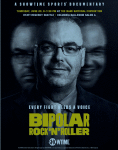Listen to thought leaders in the mental health field as they discuss advancements in research, new treatments and therapies and effective programs and strategies. See some of the highlighted presenters from the 2019 NAMI National Convention.
Kota Wade

Kota is also a popular YouTube influencer who has nearly 60 million channel views on her channel, “STEAMFAERIE”, which is signed to Disney’s Maker Studios. Kota was also on Team Gwen on NBC’s The Voice Season 9. Kota is also a NAMI Ambassador.
Elinore McCance-Katz, M.D., Ph.D.

Most recently she served as the Chief Medical Officer for the Rhode Island Department of Behavioral Healthcare, Developmental Disabilities and Hospitals and as the Chief Medical Officer for the Eleanor Slater Hospital system which is Rhode Island’s state resource for patients with the most serious mental illnesses and medical illnesses requiring long term, inpatient care. She was also Professor of Psychiatry and Human Behavior at Brown University. Previously, she served as the first Chief Medical Officer for the Substance Abuse and Mental Health Services Administration (SAMHSA).
Diana Chao

As a mental health advocate and artist, Diana fervently seeks to integrate socio-culturally literate art to promote mental wellness for youth. Her “Minority Mental Health Series: Thoughts” went viral in 2018, engaging over 2 million people, and her TEDxTeen talk has been viewed over 55,000 times. Diana also serves as a crisis worker for the National Suicide Prevention Hotline and Crisis Text Line. She speaks worldwide about youth mental health and her own experience with bipolar disorder.

Panel Discussion Featuring: Brian Dailey, SVP, Showtime Networks Inc. Mauro Ranallo, Combat Sports Announcer, NAMI Ambassador, Los Angeles, CA Frank Shamrock, Mixed Martial Arts Champion, Motivational Speaker, NAMI Ambassador Moderator: Kenneth Duckworth, M.D., Medical Director, NAMI
Xavier Amador, Ph.D.

Dr. Xavier Amador, co-Founder of the LEAP FOUNDATION & Visiting Professor at the State University of New York, is an internationally renowned clinical psychologist and leader in his field. Dr. Amador is the author of the International Best Seller, “I am Not Sick, I Don’t Need Help!” He is also a family caregiver of two close relatives with schizophrenia and another with bipolar disorder. His books, authoritative clinical research, worldwide speaking tours and extensive work in schizophrenia, bipolar and other disorders have been translated into 30 languages.
Cliff Douglas, J.D.

Cliff Douglas is the American Cancer Society’s Vice President for Tobacco Control and an adjunct professor at the University of Michigan School of Public Health. During 30 years in this field, he has represented the American Cancer Society (ACS), the American Lung Association and other public health organizations as an advocate and attorney. In his current position with ACS, he coordinates the National Partnership on Behavioral Health and Tobacco Use, which is dedicated to dramatically reducing tobacco addiction, illness and death in the high percentage of smokers with mental illness.
Maxie L. Gordon, M.D.

Dr. Gordon a psychiatrist and a primary care medical doctor who is involved in treating patients with comorbid psychiatric and medical illness. He has served as Director of Medical Student Education at the University of Mississippi School of Medicine. As current President of the Mississippi Psychiatric Association, he is an advocate for resolution and patient’s rights. He has won numerous awards including Teacher of the Year, Top Doctor, and is Board Certified in Psychiatry and in Psychosomatic Medicine.
Ross Greene, Ph.D.

Dr. Greene is the author of the influential books The Explosive Child, Lost at School, Raising Human Beings and Lost & Found, and Executive Producer of the documentary film “The Kids We Lose”. He is also adjunct Associate Professor in the Department of Psychology at Virginia Tech and adjunct Professor on the Faculty of Science at the University of Technology Sydney in Australia.
Kate Hardy, Clin.Psych.D., and Sarah Kopelovich, PhD. Cognitive Behavioral Therapy for psychosis (CBTp) is an evidence-based intervention that is recommended as an adjunctive treatment for psychosis. This workshop will provide an overview of this therapy approach, discuss keys skills, and will explore how family members may draw upon CBTp skills to support the wellbeing of their loved one.


Robert K. Heinssen, PhD

Dr. Robert Heinssen is Director of the Division of Services and Intervention Research at the National Institute of Mental Health. He is the principal architect of several major research initiatives in early detection and intervention in psychosis, including the NIMH Early Psychosis Intervention Network (EPINET).
Kathryn E. Korslund, Ph.D, ABPP

Kathryn E. Korslund, Ph.D., ABPP, is the Clinical Director of THIRA Health, a DBT based partial hospital and intensive outpatient program for women and girls in Bellevue, WA and a clinical instructor in the Department of Psychology at the University of Washington. Dr. Korslund earned her doctoral degree from the Medical College of Pennsylvania at Hahnemann University in 2001 and completed her clinical and research postdoctoral fellowship under the direction of Dr. Marsha Linehan at the University of Washington. From 2003-2017 she served as a research scientist and the Associate Director of Dr. Linehan’s Behavioral Research and Therapy Clinics studying the application of DBT to problems of adult and adolescent suicidal behavior, substance dependence and PTSD.
Melvin G. McInnis, M.D.

Dr. Melvin G. McInnis is the Thomas B and Nancy Upjohn Woodworth Professor of Bipolar Disorder and Depression and the Director of the Heinz C Prechter Bipolar Research Program at the University of Michigan. Dr. McInnis is an internationally recognized expert in bipolar and depressive disorders. He has authored 270 scientific publications and federal research funding for the past 25 years. He leads several dynamic and longitudinal research projects in translational research that includes an induced pluripotent stem cell and a mobile health program centered around bipolar disorder.
John Torous, M.D., M.B.I.

Dr. John Torous is director of the digital psychiatry division in the Department of Psychiatry at Beth Israel Deaconess Medical Center, a Harvard Medical School affiliated teaching hospital. Dr. Torous investigates the potential of mobile mental health technologies for psychiatry and has published over 75 peer reviewed articles and 5 books chapters on the topic. He currently serves as editor-in-chief for an academic journal on technology and mental health, JMIR Mental Health, leads the American Psychiatric Association’s work group on the evaluation of smartphone apps, and is an advisor to the smartphone mood study within the NIH’s All of Us research program.
NAMI HelpLine is available M-F, 10 a.m. – 10 p.m. ET. Call 800-950-6264,
text “helpline” to 62640, or chat online. In a crisis, call or text 988 (24/7).